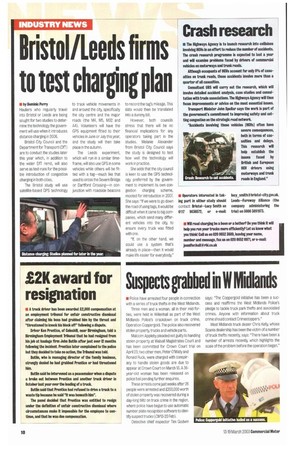Bristol/Leeds firms to test charging plan
Page 10

If you've noticed an error in this article please click here to report it so we can fix it.
• by Dominic Perry Hauliers who regularly travel into Bristol or Leeds are being sought for two studies to determine the technology the government will use when it introduces distance charging in 2006.
Bristol City Council and the Department for Transport (DfT) are to conduct the studies later this year which, in addition to the wider DfT remit, will also serve as test-runs for the possible introduction of congestion charging in both cities.
The Bristol study will use satellite-based GPS technology to track vehicle movements in and around the city, specifically the city centre and the major roads (the M4, M5, M32 and A4). Volunteers will have the GPS equipment fitted to their vehicles in June or July this year, and the study wit then take place in the autumn.
The Leeds experiment, which will run in a similar timeframe, will also use GPS in some vehicles while others will be fitted with a tag—much like that used to cross the Severn Bridge or Dartford Crossing--in conjunction with roadside beacons to record the tag's mileage. This data would then be translated into a dummy bill.
However, both councils stress that there will be no financial implications for any operators taking part in the studies. Melanie Alexander from Bristol City Council says the study is designed to test how well the technology will work in practice.
She adds that the city council is keen to use the GPS technology preferred by the government to implement its own congestion charging scheme, mooted for introduction in 2007. She says: "If we were to go down the road of using tags, it would be difficult when it came to big cornpanies, which send many different vehicles into the city, to ensure every truck was fitted with one.
"If, on the other hand, we could use a system that's already in place—then it would make life easier for everybody."
































































































































































































































